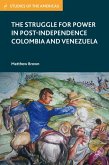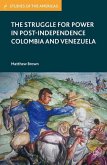Belize, a small British colony in Central America faced with a territorial claim and military threats from neighboring Guatemala, overcame disadvantages of size and power by implementing a strategy of internationalization that utilized new international norms and international organizations, in particular the Non-Aligned Movement and the United Nations. This book, written by a key player in the independence struggle, details the history of the territorial claim and of the international campaign that made it possible for Belize to achieve secure independence with all its territory despite pressures from Britain and the United States to cede land and compromise its sovereignty.
"This is a unique and important book. It is unique not only because there is no other study of this subject but also because the case of Belize is itself unique. Belize has been claimed by its neighbor, Guatemala, since the nineteenth century and this persistent threat, revived in the 1940s, resulted in the independence of the British colony being delayed until 1981, long after most British colonies in the Caribbean and elsewhere had achieved sovereignty. The author writes clearly, without academic or legalistic jargon, so his work is accessible to an educated but non-specialist readership." - O. Nigel Bolland, Charles A. Dana Professor of Sociology and Caribbean Studies, Emeritus, Colgate University








